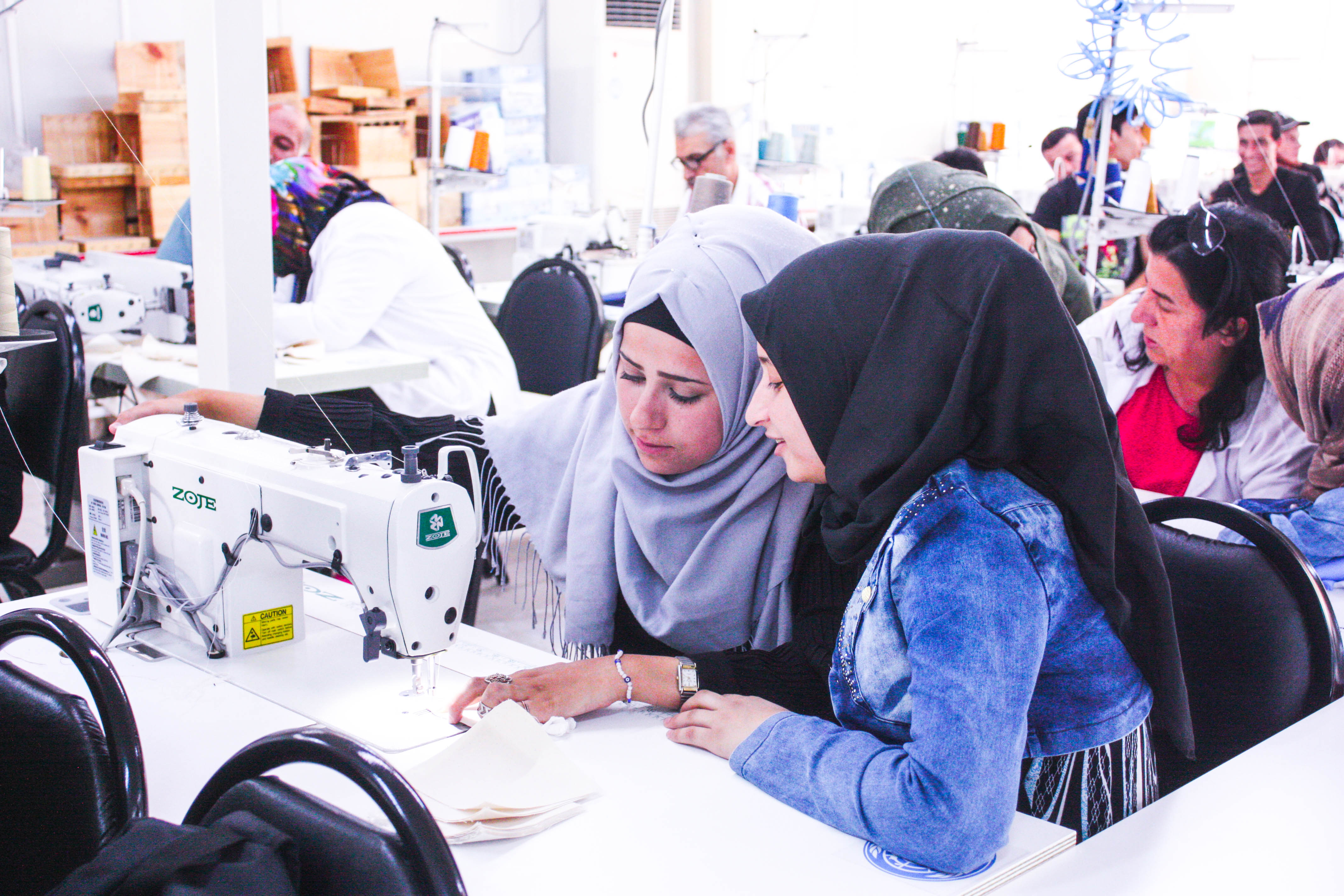When the only thing left is hope
16 September 2019 UNIDO

The war in Syria has pushed many people to flee the country in search of a safe haven. Millions of Syrians were able to find refuge in neighbouring countries, including Turkey. Residing in camps away from cities, most of them saw their lives and dreams put on hold with limited opportunities for growth and personal fulfillment.
“When you lose your job you feel like you are losing your life and you can’t provide for yourself.”
Although various programmes to help refugees already exist, their usual aim is solely to secure basic needs such as food, shelter and schooling. For instance, the United Nations Industrial Development Organization (UNIDO) is strongly committed to the “agenda for humanity” and is working hand-in-hand with donors and partners to scale up economic opportunities for communities affected by refugee movements and natural disasters.
However, it is of great importance to equip displaced people with vocational skills so that they can provide for themselves and their families. The transfer of these skills for employment will also be useful to prepare them for a productive life when they return to their homes. This is the approach that informs UNIDO’s project entitled, “Vocational training on apparel manufacture for Syrians in Turkey”. Women and youth are benefiting from it by being provided with valuable skills for (self) employment. These people, some of the most vulnerable Syrian refugees are helped to regain their human dignity and to become more resilient.
The project is funded by the Government of Japan and is implemented in partnership with the Disaster and Emergency Management Agency of Turkey (AFAD), the Ministry of National Education (MoNE), the Istanbul Ready-Made Garment and Apparel Exporters’ Association (IKHIB), the Turkish Employment Agency (ISKUR), and the Mediterranean Association of Solidarity and Assistance for Refugees and Asylum Seekers (Akdeniz Mül-Der). Three pilot training production apparel units in three refugee camps have been installed by UNIDO, at Şanlıurfa (Harran), Kilis (Öncüpınar) and Gaziantep (Islahiyein).
As a result, more than 2,000 people have graduated with MoNE training certificates and more than 25.000 items of clothing, produced during the on-the-job training, were distributed to refugees in need.
"I have learnt a lot and am very appreciative of having acquired new skills"
Beyan Dik, one of the participants in the vocational training, spoke of her experience. “There are some girls who have come here and registered for this programme to learn tailoring skills. When I met them, they were so happy and they gave the impression of feeling very comfortable in the overall environment. I immediately decided to join. Now I have learnt a lot and am very appreciative of having acquired new skills. I really am so happy in this centre and being a part of it.”
Japan’s Ambassador to Turkey, Akio Miyajima, said, “I really do hope the Syrian women have acquired new skills through this training and that it helps not only contribute to make both ends meet but also to create good opportunities for local people and Syrian women to work together.”
In the light of the successful results of the project in the first phase and upon AFAD's request, UNIDO has expanded the vocational training activities in a second phase. The main focus of the intervention was to develop new skills and install new equipment in two of the training centres in order to meet the needs of the refugees.
See also: Syrian refugees in Turkey showcase their new skills in apparel manufacturing at fashion shows